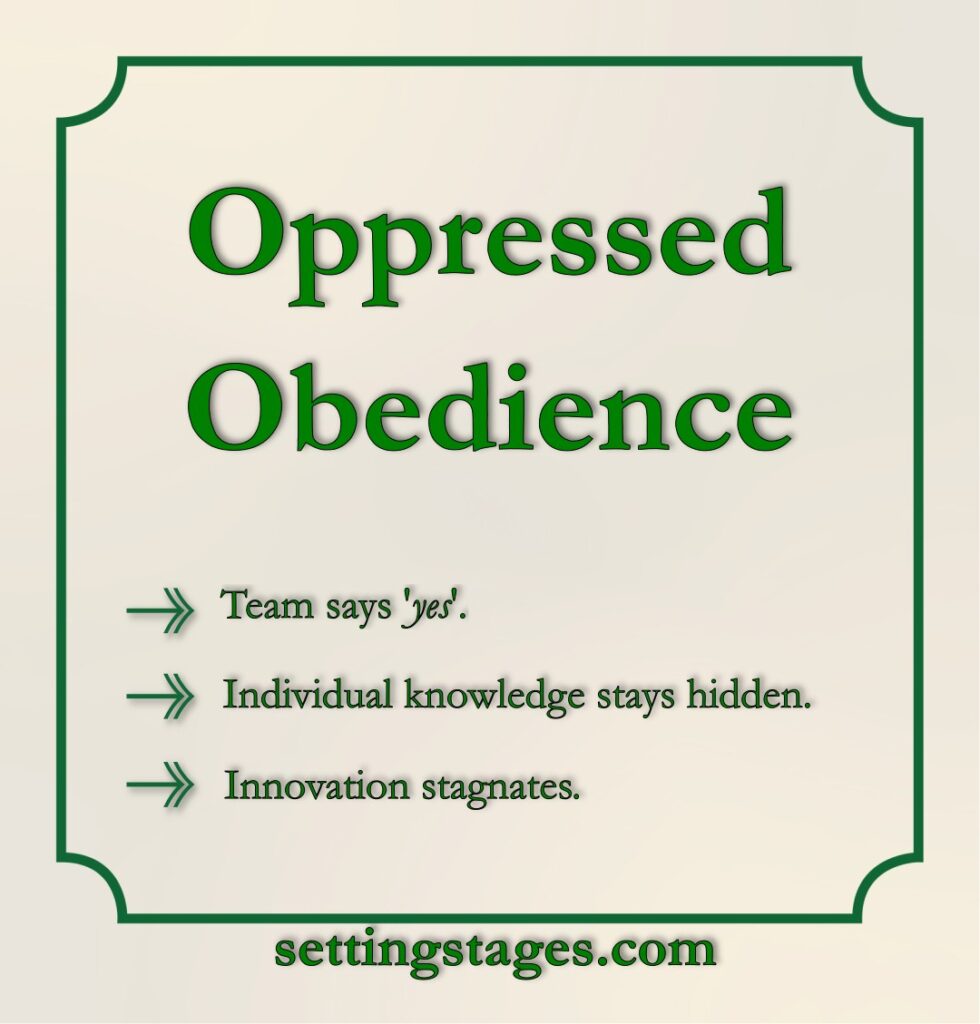How can you recognize a lack of Psychological Safety in your team? One of the signals is Oppressed Obedience. Here’s what that means.
Everyone saw it happening, nobody said a thing.
Their company paid the ultimate price.
One upon a time, there was a department that seemed to be doing fine. At first glance.
The manager ran it like a machine. Deadlines met. KPIs crushed.
But underneath the surface, there was fear.
He ruled with an iron fist. Intimidating. Dismissive. Dangerous.
Whispers started.
He was bending rules.
Whispers continued.
He started breaking them.
He turned his back against the company, to follow his own agenda.
The whispers continued.
He broke the law.
The silence was deafening.
Employees knew.
But the price of speaking up? Too high.
So they stayed silent. Powerless. Obedient.
Until it was too late.
The government found out.
The consequences?
🚨 Millions in legal fines
🚨 A dismantled department
🚨 Irreversible reputational damage
And worst of all?
🚨 It could have been prevented, if even one voice had felt safe enough to speak.
The signal

Why is it essential to signal this early?
Oppressed Obedience kills innovation—and integrity.
When people are too afraid to challenge authority, individual knowledge and skill are buried beneath fear.
The louder the leader, the quieter the truth.
And when fear takes the wheel, the whole system crashes.
Psychological Safety isn’t about comfort—it’s about courage.
The courage to ask hard questions.
To hold power accountable.
To say, “This doesn’t feel right,” and know you’ll be heard.
What can you do?
If you recognize this… seek help.
Fear may look like order. But it’s chaos waiting to happen.
Build a culture where silence is never the safe option.
